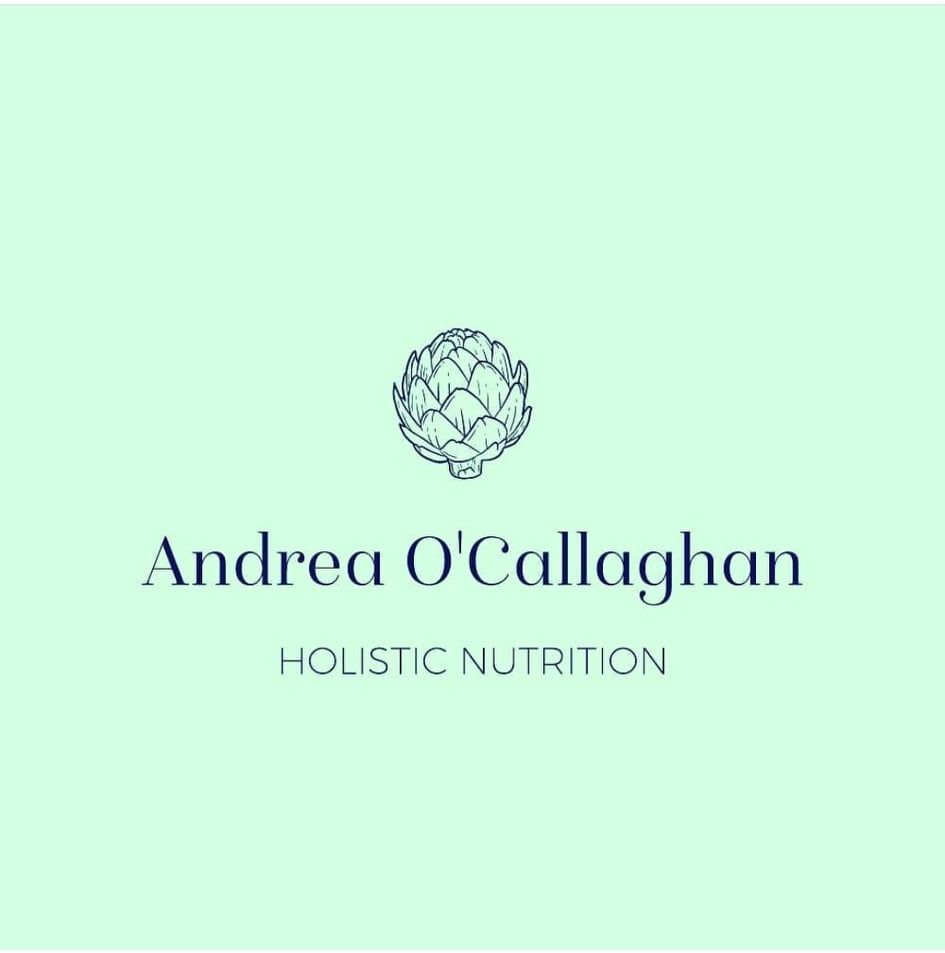Why is gut health so important?
Andrea O'Callaghan • February 19, 2021
Gut health is the foundation of all health.....
The foundation of ALL health...now that is a pretty big statement to make, but it is a true one!
First of all, what exactly is the gut?
The gut is the whole digestive tract from the mouth to the anus, and it includes all the organs of digestion like the liver, pancreas and gallbladder. Your digestive system is a sophisticated boundary between you and the outside world. It allows you to break down and absorb all the nutrients you need from food while making sure toxins, poisons, dangerous bacteria, and viruses stay out.
The gut plays countless roles in our day to day functioning, but some of the major ones are as follows.
1. Your Gut Health Affects Nutrient Absorption
Contrary to the common-sense notion that what you eat determines what nutrients are available to your body, evidence now shows that the condition of your gut determines how well you absorb nutrients from your food. Multiple studies show that your gut health helps prevent nutrient deficiencies by many different mechanisms, including:
- producing vitamins directly in the intestines for you to absorb, including vitamin K and the B-vitamins
- producing fuel for the cells lining the intestines to keep them absorbing nutrients at full capacity
- communicating with the cells lining the intestines when and when not to grow and divide and to keep the lining of the wall at the right thickness for optimal nutrient absorption
2. Your Gut Health Affects Your Toilet Habits
Having good gut health influences your toilet habits. Strong, healthy muscles in the walls of the intestines are able to contract more efficiently, pushing food through the intestines more quickly. Regular bowel movements are vital to protecting your overall health. Not only do they prevent the pain and bloating associated with constipation, they dramatically reduce your risk of developing two serious conditions:
- hernias — straining to pass the hard, dry stools caused by irregular bowel movements puts you at serious risk for developing a hernia. A hernia occurs when an intestine or other organ pushes through the wall of your abdomen or diaphragm. This is not only debilitatingly painful but may also become life-threatening.
- colon cancer — though occasional constipation likely has little effect, having irregular bowel movements for extended periods of time puts you at greater risk for certain types of cancer. This is because bowel movements are responsible for removing toxins and digestive fluids from your body. If you are not having regular bowel movements, these toxins stay in your body, potentially promoting cancer.
Perhaps the most important cancer-causing molecules that build up in your intestines if you are constipated are bile acids. While you are supposed to have moderate amounts of bile acids in your intestines to help digest and absorb fat, high concentrations can damage your DNA, promoting cancer. Many studies show that when bile acids build up in the digestive tract, they can increase the risk of throat, stomach, and intestinal cancer.
Additionally, if bile acids aren’t removed from the gut quickly enough, through regular bowel movements, they can be absorbed by the intestines and build up in the bloodstream as well. From there, they can promote cancer anywhere in the body, such as in the breasts or the pancreas.
3. A Healthy Gut Protects You from Infections
It may not surprise you to learn that gut health affects the way your digestive tract wards off infections. Healthy intestines and gut microbiota perform complementary functions that prevent infections. More on the microbiome later...for now we will look at the big picture. A healthy top layer of intestinal cells creates a physical barrier, keeping the dangerous bacteria out of the walls of the intestines.
4. A Healthy Gut Prevents Systemic Inflammation
Systemic inflammation describes a state where the immune system produces the chemicals it uses to fight an infection even though there isn’t an infection.
This can occur for many reasons but one of the most common is having molecules in your blood that are usually there when you do have an infection, such as lots of cholesterol or sugar. If your immune cells see these molecules in your blood, but cannot find an actual infection, they become confused and start just releasing infection-fighting chemicals into your bloodstream. Unfortunately, these chemicals can also damage your healthy cells if released in this unregulated way. Over long periods of time, damage to your healthy cells from these chemicals can lead to many of our most common chronic diseases, including: obesity, type 2 diabetes and cancer.
There is convincing evidence that a healthy gut prevents systemic inflammation. Specialized gut-based immune cells send calming signals to the rest of the immune system, turning off the white blood cells producing the damaging chemicals.
5. A Healthy Gut Prevents Autoimmune Diseases
An autoimmune disease is a condition where your immune system recognizes a normal molecule in your body as dangerous and begins attacking and killing any cell that contains it. Scientists believe many autoimmune diseases develop when the immune system encounters a foreign molecule that happens to be very similar to one naturally found in your body. When the immune system begins destroying the bacteria or virus that brought the foreign molecule into your body, your healthy cells get caught in the cross-fire.
It has been established that your gut health plays a role in many autoimmune diseases, including: Crohn’s disease, ulcerative colitis, rheumatoid arthritis, type 1 diabetes, and multiple sclerosis. Scientists believe that this is because good gut health minimizes the number of foreign molecules the intestinal immune cells come into contact with. The fewer foreign bodies the immune system sees, the less likely it is that one of them will happen to look like a structure in your body.
If you already have an autoimmune disease, a healthy gut may still be helpful for you. Evidence suggests that a healthy gut, specifically a healthy gut microbiota, can alleviate the symptoms of an autoimmune disease. This is due to the ability of healthy gut microbes to activate the immune cells mentioned above. These are called T-reg cells, and they can turn off immune cells that are attacking your own cells, helping slow down the damage to your tissues and organs.
6. A Healthy Gut Prevents Heart Disease
Now, let’s talk about how your gut health plays a crucial role in keeping your heart healthy. Studies indicate that a healthy gut can influence four of the most important risk factors for developing heart disease:
- high cholesterol — elevated levels of cholesterol in the blood are an important risk factor for developing heart disease. A healthy gut doesn’t absorb as much cholesterol out of your diet, lowering blood cholesterol levels.
- chronic inflammation — chronic inflammation promotes cardiovascular disease. As mentioned above, a healthy gut helps prevent chronic inflammation.
- high blood pressure — healthy gut can help lower your blood pressure due, at least in part, to effects of so-called “short-chain fatty acids” (SCFAs). These small molecules are made as byproducts when healthy gut bacteria break down fiber for their own energy needs. Studies have found specific blood-pressure-regulating receptors that respond to SCFAs in the blood.
- elevated TMAO concentrations — trimethylamine N-oxide (TMAO) is a product formed by certain harmful gut bacteria when they break down choline, a natural nutrient found in many plant and animal foods. TMAO can be absorbed through the intestines and enter the bloodstream. Unfortunately, TMAO is harmful for your arteries, making you more susceptible to developing heart disease. A healthy gut microbiome produces little to no TMAO.
7. A Healthy Gut Protects Your Brain
The final, and perhaps most unexpected, benefit of a healthy gut is a healthy brain. There is now overwhelming evidence that a healthy gut protects against many mental health disorders and neurological conditions, including: depression, anxiety and autism.
Scientists still know little about the mechanisms coupling gut health to mental health. One of the most promising theories is that short chain fatty acids (SCFAs) made by healthy gut microbes are able to send signals to the brain improving your mood and cognition.
We know that some SCFAs are able to directly activate the parasympathetic nervous system. This is a branch of the autonomic nervous system, which controls body functions you are unaware of — breathing, heart rate, body temperature. Changes in parasympathetic signals to the brain can change hormone levels in the brain to regulate functions like appetite. Further research is being conducted to determine if a similar mechanism may be able to regulate mood and cognition as well.
Finally, healthy gut bacteria may be able to change the amounts of chemical messengers in your brain, such as serotonin or dopamine, modulating mood directly.
And each of these factors is also directly intertwined with and affected by the gut microbiome...more to come on this!
Take home message:
ALL health issues have been linked to the function of the “gut” - heart disease, obesity, cancer, osteoporosis, allergies, autoimmune diseases, arthritis, depression, anxiety, brain function and all conditions related to the brain and nervous system, acne, liver disease, and of course, all stomach and intestinal conditions. So addressing any health issue without addressing the gut component would be an incomplete approach. AND looking after the health of our gut is the single most important preventative measure we can take when it comes to our wellness!
How and why all these conditions are linked to gut health is cause for thousands of annual research studies. While there is plenty more to learn in years to come, one thing is certain: our good gut bacteria play a huge role in regulating many functions in the body. When we do not have enough, we do not function properly and health issues develop. The next blog post will focus completely on these gut bacteria, which are known as our gut flora or microbiome.
So, the question is not when you should do gut health work, but why you aren’t always doing gut health work. No matter what issues you may be experiencing, improving the function of your digestive and intestinal system will help.

The formula is simple: Diverse diet = Diverse microbes = Good health . That is all we have to do help improve our gut health. The problem is we do not have a diverse diet. I remember when I used to eat the same thing for breakfast EVERY DAY when I was in high school, for example (we won't dwell too long on the fact that it was cinnamon sugar toast) . Even as I got more health conscious and upgraded my breakfasts to include smoothies, I would make a smoothie every morning! Definitely an improvement over cinnamon sugar toast, but the same thing every day is not ideal, either. This is not just about a processed diet vs whole food diet. Yes, a processed food diet is bad for our good microb es, but a whole food diet that is not diverse can also be problematic for the diversity of our gut. Most of us consume no more than 15 different foods in a week. This is not diversity, even if we hit all the food groups. Then there are those who choose to el iminate food groups such as grains and legumes. T his is taking out a range of substantial foods that will feed many beneficial bacterial species. And believe it or not, there are still people – adult people – who refuse to eat vegetables, and they are prou d of it. Again, vegetables represent all kinds of foods that will feed a lot of different species. This is just basic diversity, and it gets more complicated. So not only do we all need to be more adventurous and try to eat different foods, we need to eat d ifferent varieties of the same food. This is one of biggest changes we have had in our diets that make us different from our ancestors. They ate a greater variety of foods than we eat today, and they grew different varieties of the same food. This was g ood for the soil, it helped protect them against potential crop loss, and it increased the nutrients available to them in their diet. J ust like with money, it is important to diversify. Today, agriculture does not function that way. Farmers grow few crop types, and seldo m do they grow more than one variety of the same crop. There are over 6000 varieties of tomatoes – each one has different properties and a different nutrient composition!! We are missing out on a lot. And while we cannot possibly consume 6000 different vari eties, we can expand our repertoire, especially in the summer, and seek out as many varieties as we can find. Heirloom varieties are something I get really excited about when it comes to growing things in my own garden. So while researchers continue to unravel the mystery of our gut and figure out what we should feed it, specifically for specific benefits, we can d o more to increase the diversity and build a stronger gut by eating new foods. This week, buy three new foods you do not eat regularly. They can be foods you have never had or foods you like but for some reason never buy. Here are a few things you can do t o diversify: Buy yellow or rainbow beets instead of red beets. Choose purple or white carrots instead of orange. Look for heritage varieties and buy them when you find them. Go to farmer’s markets and talk to the local farmers. Generally, these are the farmers who still grow a variety of crops. Let them know you are interested in trying different varieties of tomatoes or potatoes etc. Shop at ethnic stores and look for new grains and legumes. Go to ethnic restaurants - this way someone else can prepare the foods for you. Think of the fun and adventure you can have – you and your microbes will be happier!! Reference: Mark L. Heiman, Frank L. Green way. A healthy gastrointestinal microbiome is dependent on dietary diversity. Molecular Metabolism, 2016; DOI: 10.1016/j.molmet.2016.02.005


